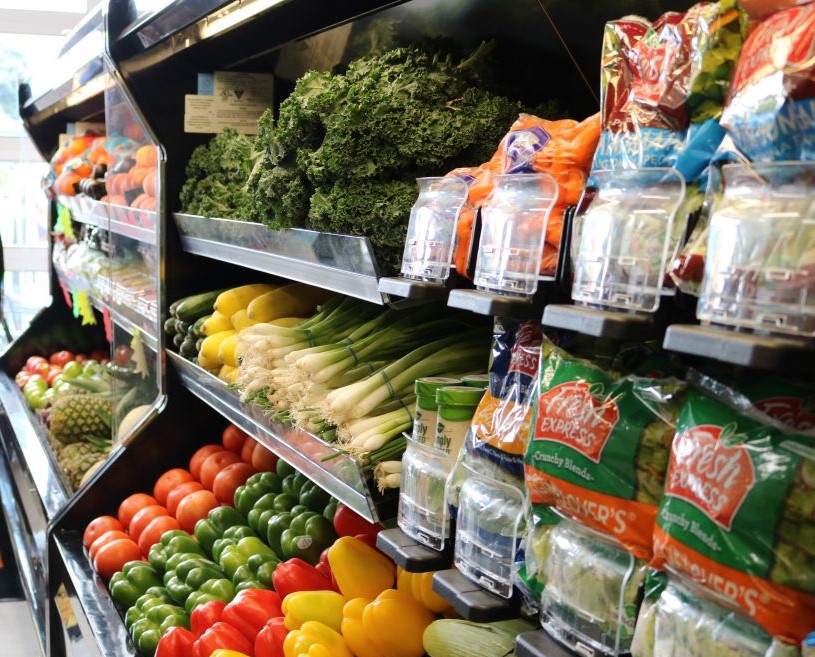Federal SNAP Benefits Could Take Weeks to Arrive
And even then payments would be reduced, WI Department of Health explains.
Despite court orders for the federal government to resume sending federal funds to the states for food assistance programs for the month of November, the money will take weeks or longer to arrive and will only cover a portion of the benefits people are supposed to receive, Wisconsin’s health department confirmed Tuesday.
The delay is a result of the federal decision to spend only the contingency funds said aside for the Supplemental Nutritional Assistance Program, or SNAP, according to a statement late Tuesday afternoon from the Wisconsin Department of Health Services communications office. DHS administers Wisconsin SNAP benefits through the state’s FoodShare program.
SNAP benefits stopped flowing Nov. 1 as a result of the federal government shutdown, which has halted federal spending in all but some specific functions of the government.
The U.S. Department of Agriculture declined to tap other funding sources in order to cover the full benefits for November, a department official said in a court document filed Monday.
About 700,000 Wisconsin residents receive SNAP benefits through the FoodShare program, according to DHS. Benefits are distributed to an electronic “QWEST” card that is used like a debit card to purchase food at participating grocers and other vendors.
According to DHS, because of the benefit reduction, states must recalculate the benefits they send to households enrolled in the SNAP program. States must then send an electronic file with the revised benefit information to the electronic benefit transfer businesses that distribute the funds to members’ QWEST cards.
“Due to the many steps that need to be taken as well as the likely bottleneck of only having two vendors that can deploy benefits to cards, the Trump Administration indicates this process will take weeks to months instead of days compared to the timeline if the federal government had chosen to provide full November benefits to states,” DHS said in an update sent to news organizations Tuesday afternoon.
“Because the federal government chose a more complex pathway, the federal government will need to issue guidance to states and then states will have to determine how to allocate partial benefits to each household,” the DHS update stated. “This means the timeline for partial November benefits to be added to [each] member’s cards is still to be determined.”
A provision in the federal mega-bill cutting spending and taxes that President Donald Trump signed July 4 will further complicate the process, according to DHS.
States with error rates of more than 6% in their SNAP programs will bear additional administrative costs. Paying partial benefits rather than full benefits “will force states to use an unprecedented process instead of the process we would typically use,” according to the DHS update, “which has the potential to jeopardize Wisconsin’s and other states’ error rates.”
DHS has asked the Legislature to allocate an additional $69.2 million to the department to cover anticipated increases in administrative costs and hire additional staff to help keep Wisconsin’s error rate low.
Tables that USDA distributed Tuesday indicate that in 48 states, including Wisconsin, the reduced November benefits will range from $149 a month for a one-person household to $497 for a four-person household and $894 for a household of eight. The DHS update noted that “we caution that the tables don’t necessarily reflect what a family would receive.”
Although the Trump administration agreed in court filings to partially fund November’s SNAP benefits, Trump backtracked on that pledge with a social media post, saying that the benefits would not be released until Democrats in Congress agreed to reopen the government.
Tuesday’s update from DHS alluded to the post, stating that the department is “aware of the president’s recent social media message from this morning” — after DHS received the USDA message and the reduced benefit amounts — “and will continue to monitor activity from the federal government.”
Wisconsin confirms reduced SNAP benefits could take weeks to arrive was originally published by the Wisconsin Examiner.
If you think stories like this are important, become a member of Urban Milwaukee and help support real, independent journalism. Plus you get some cool added benefits.






















